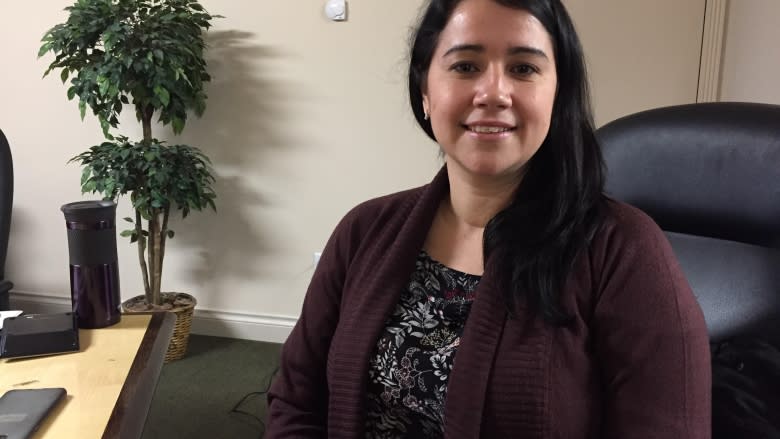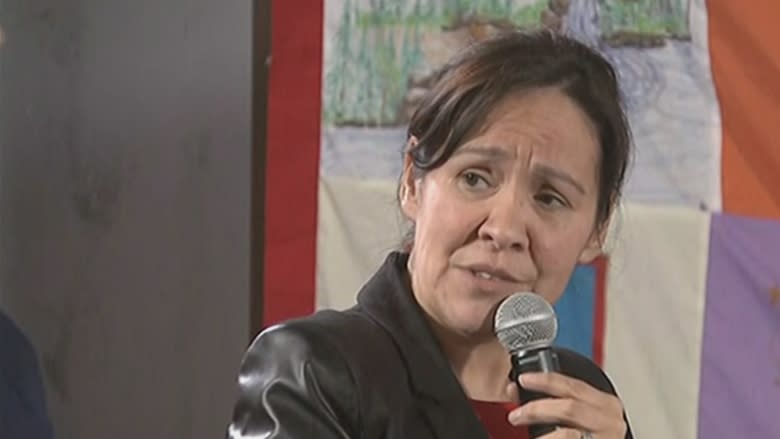MMIWG inquiry asks federal government for 2-year extension
The national inquiry into missing and murdered Indigenous women and girls is asking the Canadian government for more time to complete its work.
On Tuesday, the inquiry asked for a two-year extension, until Dec. 31, 2020, according to a news release.
Marion Buller, the inquiry's chief commissioner, said in the release that officials need more time "to do justice to our critically important mandate."
Additional time would allow members of the inquiry to connect with more women and girls, hold more hearings and "commission original research," the release says.
Buller said on Tuesday afternoon that the additional time would help the commissioners reach more vulnerable people, including members of the LGBTQ community.
"Vulnerable populations require special care from start to finish. They need to be able to feel safe," she said.
Buller said an extension would allow statement gatherers to speak to people in private, outside of the hearing process.
"Where they are out of the spotlight. Where there isn't media watching them coming and going. Where they feel safe sharing their stories," she said.
"Though the commissioners have connected with frontline organization and met with women in women's shelters and on the streets such as Vancouver's Downtown Eastside, they are also looking at hearing from people in prisons and penitentiaries."
Buller said if the extension isn't granted, the commission will still finish its work within the existing mandate.
"It will not be as in-depth, as comprehensive, certainly not be as compelling as our work would be with the extension," she said.
The inquiry was expected to take two years and cost almost $54 million. There's no word on what a two-year extension would cost.
Original timeframe eaten up by logistics
Lesa Semmler, who was eight years old when her mother was murdered, was among the first to give testimony at hearings into the national inquiry when it stopped in Yellowknife at the end of January.
She is also a member of the National Family Advisory Circle, a volunteer advisory group that inquiry organizers consult with. Semmler said members of the advisory circle have been aware of the request for the extension for a while, and she fully supports the proposal.
"As a family member, I want my testimony — I want something of meaning to come from this," Semmler said.
"If it means we need to continue for another year or two until we can get everything that we need to get done, then I sure hope that our government will support us, especially the families that have already testified."
She said some of the inquiry's original two-year mandate was eaten up by logistics.
"They were given their mandate, given two years and given a budget," Semmler said. "But we all know how slow wheels turn in government … they spent so much time trying to set up … two years is just not enough time."
763 witnesses have shared stories
Laura Mackenzie initiated the invitation that brought the inquiry to Rankin Inlet, Nunavut, last month, where she also gave testimony about the murder of her cousin. She said she's not surprised about the request for an extension.
Mackenzie said many stories remain to be heard, both through public and private testimony.
"I do encourage an extension of the inquiry … I see how positively it can impact an individual family and community."
The inquiry is travelling across Canada in an effort to understand why Indigenous women are statistically five times more likely to die by violence than other women in the country.
So far, 763 witnesses have shared their stories during 134 public hearings, while another 103 people have spoken in-camera at 11 community hearings, according to the news release. Hundreds more have registered with the inquiry.
The national inquiry began in September of 2016 and was expected to wrap up by the end of this year.



